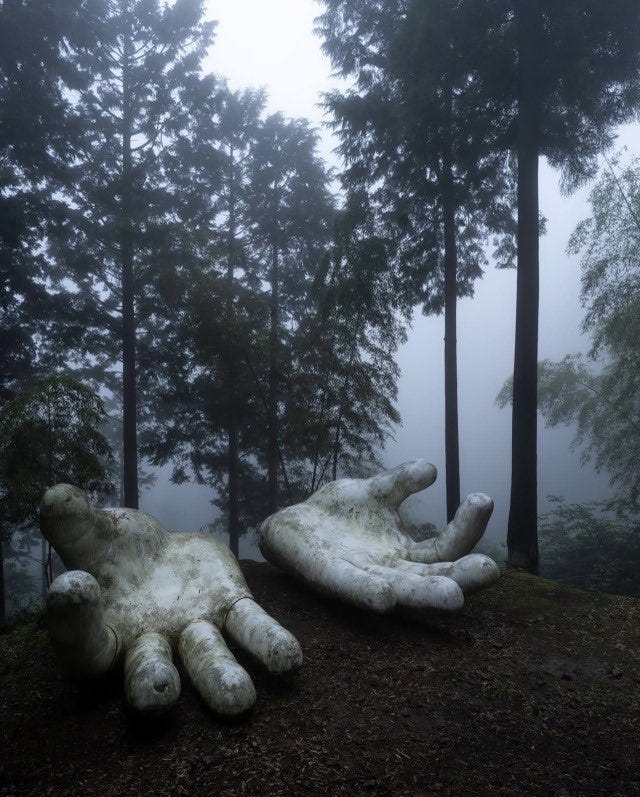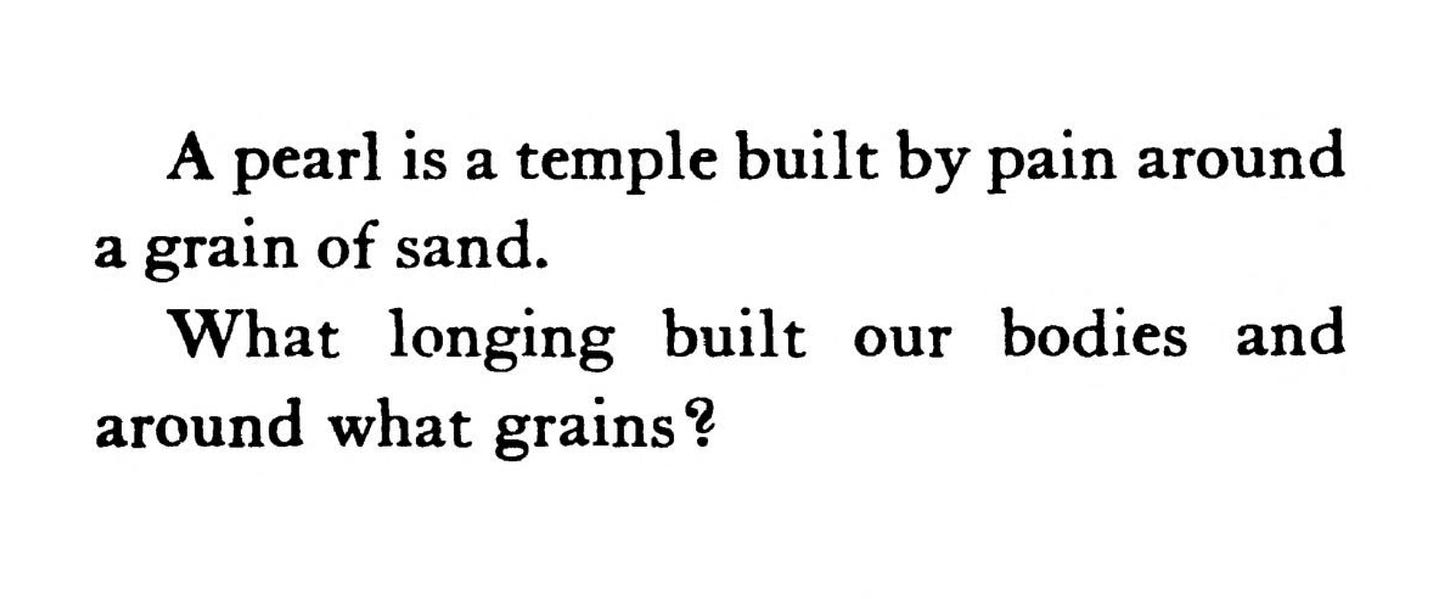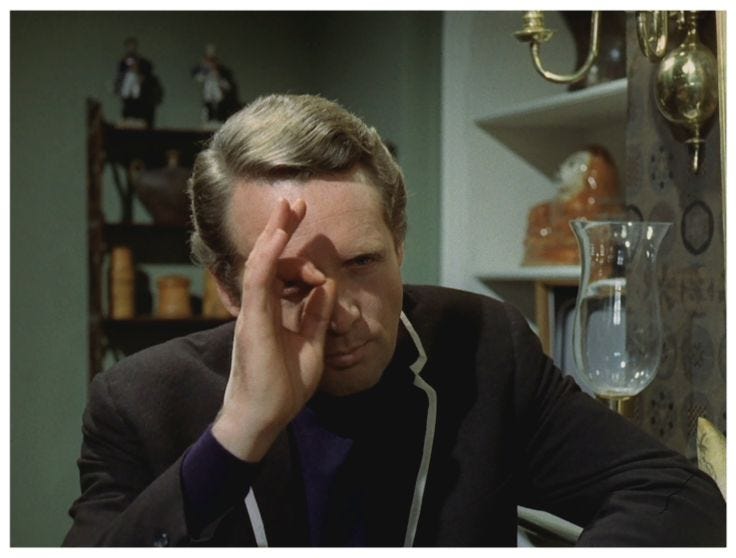{D} 103: How to write
Read to the end for a question about your inspirations
Different format today, and I hope you see how it's connected to Delightful’s theme of nurturing creativity in our daily lives and work. This is all just an experiment and I reserve the right to keep f’n around with this newsletter until it makes sense. To me, anyway. Hopefully to you, too. -s.How to write
It always begins with a feeling.
In the Virginia summers, when I was a kid, I laid in bed every night with the window open, falling asleep while the horn of some freight train, off in the tidewater dark, rolled across the James, past Maymont Park, past Belle Isle. Something coming, something leaving, you’re not sure whether or what.
They told me later that writing begins with noticing, and the feeling of having noticed.
Pay attention, be astonished, tell about it, said Mary Oliver.
Means, yes, pay attention to the darkling whale moan of trains in the rail yard, but also how those sounds move us inside.
Gotta notice that, too.
I imagine that’s why writers like trains.
If the seat back, on-screen theatre of an airplane is meant to distract you from the hurtling fact of your movement—few people look out windows unless there’s something turbulent and wrong—on a train all that matters, cliche as it sounds, is the journey, the landscape of fir trees and caved-in farmhouses and fields, and something else besides. The undeniable certainty, witnessed in scenery, that you are actually getting somewhere.
And, getting there, that you’ve actually seen.
“The train can reassure you in awful places,” wrote Paul Theroux of a journey he took, as a struggling novelist, because he didn’t know what else to do. “A far cry from the anxious sweats that doom airplanes inspire, or the nauseating gas-sickness of the long-distance bus, or the paralysis that afflicts the car passenger.”
The train, Theroux knew, is a bewitchment. Unattended but not alone, you can sit and think and then—even if you never make any progress in your head—the rhythmic trundle of the cars and the whoosh of the grasses out the window remind you of your progress through the world, and occasionally lets you suspect that the world may be just for you.
I imagine that’s why writers are attracted, also, to fire watch towers.
Jack Kerouac watched for fire, wrote some books.
Gary Snyder watched for fire, wrote some poems.
Edward Abbey watched, too. Spent a decade’s worth of summers on peaks across Arizona, California, Montana, and Wyoming, avoiding “the griz” and trying to tell, in the distance, the difference between conflagrations (yearned for) and those lesser non-sparks: smoking garbage dumps, floating vapors, and dust rising from dirt roads. He watched, too, for something coming, something going, not sure whether or what.
“Enormous clouds with evil black bottoms floating in from the Pacific, great sailing cities of cumulo-nimbus,” he wrote in The Journey Home. “Lightning plays among their massy depths. Will it bring fire? God, one hopes so.”
T.S. Eliot: he was a lookout, too. Not for forest fires, but for bombs whistling down and everything hot and terrible that happened afterward.
Watching on mountains continues to be a romantic avocation. You’ve seen those tiktoks, perhaps, of kids ferrying gear up to mountain towers. I saw one leading a line of donkeys, all heavily laden with pots and sleeping bags and, what, dried meats I guess. Will they find what they’re looking for? Will they write books and poems? They look happy. They don’t look like they’re going far away.
“This is a remote place indeed, far from the center of the world, far away from all that’s going on,” Abbey wrote. “Or is it? Who says so? Wherever two human beings are alive, together, and happy, there is the center of the world.” That summer in Glacier Park, Abbey was lucky enough to have his wife with him. The kids on tiktok are lucky enough to have the whole world in their comments. Somehow that seems lonelier.
But still I imagine that standing lookout is a close analogue to writing, that we’re doing in the great outdoors what we do within the greater territory of ourselves: looking across ridges and valleys for fire’s first inspiration.
But then there are the times, maybe more often than not, I fight against noticing anything at all. I find myself resistant to feeling or, once having felt, resistant to writing about it. The need and compulsion to write, the guilt, is always there—if only I could make myself do the thing.
Those times I don’t feel as if I’m on any peak’s tower, but like I’ve woken up in one of the ominously green valleys I was supposed to be watching. I find myself inside a sleeping bag that I’m trying to kick off, kick out of, kick away. Maybe you’ve felt that. Maybe you’ve woken up in that bag, that bag’s inside a tent, and outside that tent is something that wants to get in. Or maybe just wants you to notice it.
Wake up, get up, sit up, jot it down.
It’s hard.
I don’t want to do it.
It’s like Dorothy Parker is supposed to have said, but didn’t: I hate to write, but I love having written.
Tough life, that one. Troubled childhood. Horrible stepmother. Married three times, twice to the same man. He later committed suicide, she later attempted it: once by slashing her wrists, once with Veronal, once with barbiturates, once by drinking a bottle of shoe polish. In between, she wrote.
Brevity is the soul of lingerie, that’s Dorothy Parker.
You can lead a horticulture, but you can’t make her think, that’s Dorothy Parker.
Excuse my dust. That’s Dorothy Parker. More precisely, her epitaph. She wrote that, too.
She said for every five words she wrote, she erased seven. You could call her a suffering artist, but I enjoy more Khalil Gibran’s idea of the patterned artist: that is, that we’re all continually acting out those first feelings, over and over and over again.
Maybe that’s ultimately how to write.
On a train, in a tower, at a desk, wherever, it’s all the same. It’s all just the act of noticing and being astonished at our noticings, of unfolding our own tightly clenched bodies from a feeling that, over a lifetime, we’ve knuckled ourselves around.
-s.
Now I want to ask you: What’s your first memory of being inspired to write, or to create? What the moment or feeling that kicked it off for you? Tell us in the comments:
Further Reading
Sand and Foam: A Book of Aphorisms, by Kahlil Gibran
The Great Railway Bazaar: By Train Through Asia, by Paul Theroux
The Journey Home: some words in defense of the American West, by Edward Abbey
Red Bird: Poems, by Mary Oliver
Thanks for reading. Be seeing you.











In my case, even though I enjoy being a spectator, I don’t want to be just one. I want to try my hand at it. So when an author inspires me, I want to write. When a band excites me, I want to make music. And so on. As a result I’ve dabbled in many things, but have never become any good at any.
Also reading your post made me realize that I don’t remember having been inspired by nature to create things — it’s always the work of others that makes me want to do something.